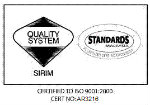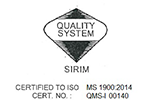Ungku Aziz and a New Story of Development
On 15th December 2022, the Institute of Islamic Understanding Malaysia (IKIM) held an International Forum to commemorate the second anniversary of the passing of one of Malaysia’s most eminent development thinkers and institutional builders, al-marhum Royal Professor Ungku A. Aziz (d. 2020).
In his Royal Address, His Royal Highness Sultan Nazrin Shah held that a nation’s development is linked not only to how much money we have, or to how many modern buildings and highways we can construct. Rather, development must include its nonmaterial elements and inner dimensions of cultural refinement, ethics, and quality of thought of the people.
This was precisely how Ungku Aziz expanded the frontiers of development, in my opinion. Ungku Aziz recognised the importance of the great arts, literature, philosophies, and religions of the world as we march towards the future. In 1992, he remarked: “The study of literature and mankind’s heritage should not be forgotten even though Malaysia is gearing towards becoming a scientific and progressive society in the next century… The education system and society generally has to be connected to the literary and aesthetic heritage of mankind.”
While there is no denying that bread and butter issues, socio-economic justice, and the alleviation of poverty must remain high on the agenda of any developed nation, it is often taken for granted that the proper inner development of the nation will ultimately determine such practical issues to be addressed in a more intelligent, wise, and far-reaching manner.
It is for this reason that even while the Western nations are very much invested in the United Nation’s Sustainable Development Goals (SDG), recently, a group of researchers, experts and practitioners supported by a number of corporate entities in Europe are pushing for an agenda of ‘Inner Development Goals’ (IDG) to overcome the shortcomings of the SDGs.
It is unfortunate though that a group from the West is the one which is leading this initiative, especially when Muslims have long thought about development in more integrated and comprehensive way, which can also be seen in thoughts and body of work of Ungku Aziz, among others.
This habitual tendency to uncritically imitate any development agendas and trends in the world today is utterly disappointing and worrying. It is often ignored or forgotten by many in policy circles that most agendas and ideas emerging from the West or international bodies is a result of a centuries-long process wherein metaphysical or spiritual realities are systematically sidelined and rejected.
It is not sufficient to simply rubber stamp the SDG with the maqāṣid al-sharīʿa approach either, as it ignores the unstated ontological, cosmological, and psychological assumptions of the SDGs which have been secularised in meanings.
It is for this reason also that often when experts from the West (or those trained in the West) propose solutions to challenges facing a nation or the world for that matter, it is often seen in isolation instead of in an interconnected fashion.
Interestingly, Ungku Aziz have long saw the futility of such thinking-in-isolation approach. He remarked in this regard: “…in reality, the problems of the modern world have not conveniently fitted themselves into the pigeonholes of university departments. Many problems involving complexity need to be studied from a cross-disciplinary approach.”
More recently, the scholar and thinker Syed Ali Tawfik Al-Attas have also expressed something similar with regard to confronting the systemic challenges we are facing. He stated on IKIM Radio’s “Shaping Tomorrow” programme once: “It is not worthwhile to look at things in abstract or in isolation. You have to look at things as a whole.”
In any case, Malaysia stands a chance to lead the conversation for the Muslim world to redefine the meaning of development and develop an agenda which harmoniously integrates the inner and outer dimensions informed by the wisdom teachings of Islam—both in the sense of theoretical wisdom (hikmah nazariyyah) and practical wisdom (hikmah amaliyyah).
This is so because we have an individual in the stature of His Royal Highness Sultan Nazrin Shah, alongside many learned individuals and institutions (including the Institute of Islamic Understanding Malaysia) from this country alone with the intellectual capacity to embark in such an agenda.
Assuming we can agree with the assumptions on development from the likes of Ungku Aziz, what would be the most viable and far-reaching approach to factor in those considerations?
Indeed, the answer partly lies in one of Ungku Aziz’s most fascinating papers written in the later phase of his life titled “The Role of the University in Asia in the 21st Century”, which was published by The United Nations University in a volume titled The Role of the University: A Global Perspective (1994).
In the paper, Ungku Aziz states that universities need to play a catalystic role in expediting a ‘renaissance’ (or a revival) of Asian learning tradition. By this he means, among others, that tradition which seeks to find ways for man to harmonise himself with nature and seek ways to inner peace by improving relations not only with this world and the other world, and that tradition which seeks to cultivate excellence including the refinement of character or the inculcation of adab as understood in the Islamic tradition.
The other part of the answer lies in God’s command (Surah al-Nisa’ (4): 58) to return the various trusts (amanah) to its rightful keepers (ahl), for only then can development in all areas of life be achieved. Otherwise more corruption (fasad) and injustice (zulm) will necessarily reign supreme.




